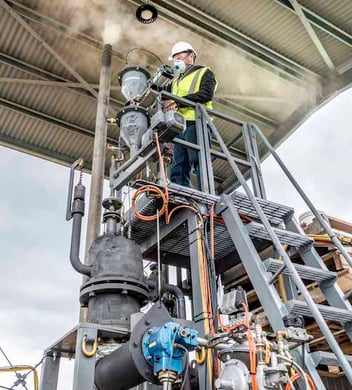Researchers create stronger concrete using wastewater by-product
In a bid to bolster the circular economy, researchers have shown how steel slag – a by-product of steel making processes – can be used to treat wastewater and make stronger concrete.
Published in Resources, Conservation and Recycling, the RMIT University study examined the relationship between steel slag used in wastewater treatment and the composition of concrete made using the post-treatment slag.
RMIT water engineer Dr Biplob Pramanik said the study was the first to investigate potential applications for ‘sewage-enhanced’ slag in construction material.
“The global steel making industry produces over 130 million tonnes of steel slag every year,” he said.
“A lot of this by-product already goes into concrete, but we’re missing the opportunity to wring out the full benefits of this material.”
Produced during the separation of molten steel from impurities, steel slag is often used as an aggregate for making concrete.
However, the slag can also be used to absorb contaminants like phosphate, magnesium, iron, calcium, silica and aluminium during the wastewater treatment process.
Concrete made with post-treatment steel slag was about 17% stronger than concrete made with conventional aggregates and Pramanik said making stronger concrete could be as simple as enhancing the steel slag by first using it to treat wastewater.
“While there are technical challenges to overcome, we hope this research moves us one step closer to the ultimate goal of an integrated, no-waste approach to all our raw materials and by-products,” he said.
With the aim of advancing sustainability practices in industry across Australia, Pramanik said it’s important to start looking at by-products as potential resources.
“The things that we want to remove from water are actually beneficial when it comes to concrete, so it’s a perfect match,” he said.
Co-researcher Dr Rajeev Roychand said the initial study was promising but further research was needed to implement the approach on a larger scale.
“Steel slag is currently not in widespread use in the wastewater treatment industry – just one plant based in New Zealand uses this by-product in its treatment approach,” he said.
“But there is great potential here for three industries to work together – steel making, wastewater treatment and construction – and reap the maximum benefits of this by-product.”

